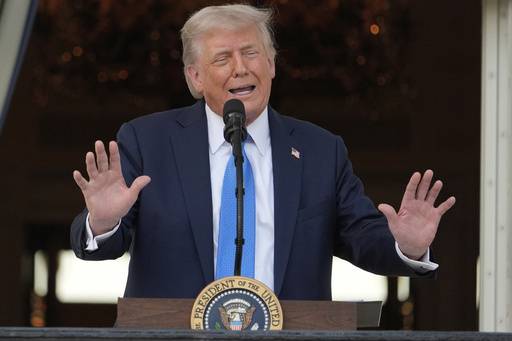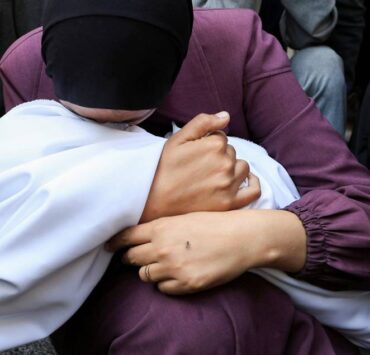Trump bans travel from 12 countries

WASHINGTON—President Donald Trump on Wednesday resurrected a hallmark policy of his first term, announcing that citizens of 12 countries would be banned from visiting the United States and those from seven others would face restrictions.
The ban takes effect Monday at 12:01 a.m., a cushion that avoids the chaos that unfolded at airports nationwide when a similar measure took effect with virtually no notice in 2017.
Trump, who signaled plans for a new ban upon taking office in January, appears to be on firmer ground this time after the Supreme Court sided with him.
Some, but not all, 12 countries also appeared on the list of banned countries in Trump’s first term.
Restrictions on 7 others
The new ban includes Afghanistan, Myanmar, Chad, the Republic of Congo, Equatorial Guinea, Eritrea, Haiti, Iran, Libya, Somalia, Sudan and Yemen.
There will be heightened restrictions on visitors from Burundi, Cuba, Laos, Sierra Leone, Togo, Turkmenistan and Venezuela.
In a video released on social media, Trump tied the new ban to Sunday’s terror attack in Boulder, Colorado, saying it underscored the dangers posed by some visitors who overstay visas.
The suspect in the attack is from Egypt, a country that is not on Trump’s restricted list. The Department of Homeland Security says he overstayed a tourist visa.
Trump said some countries had “deficient” screening and vetting or have historically refused to take back their own citizens. His findings rely extensively on an annual Homeland Security report of visa overstays of tourists, business visitors and students who arrive by air and sea, singling out countries with high percentages of remaining after their visas expired.
“I must act to protect the national security and national interest of the United States and its people,” he said in his proclamation.
Exceptions for Afghans
The inclusion of Afghanistan angered some supporters who have worked to resettle its people. The ban makes exceptions for Afghans on Special Immigrant Visas, generally people who worked most closely with the US government during the two-decade-long war there.
“To include Afghanistan—a nation whose people stood alongside American service members for 20 years—is a moral disgrace. It spits in the face of our allies, our veterans, and every value we claim to uphold,” said Shawn VanDiver, president and board chair of #AfghanEvac.
Trump wrote that Afghanistan “lacks a competent or cooperative central authority for issuing passports or civil documents and it does not have appropriate screening and vetting measures.” He also cited its visa overstay rates.
Haiti, too
Haiti, which avoided the travel ban during Trump’s first term, was also included for high overstay rates and large numbers who came to the US illegally.
Haitians continue to flee poverty, hunger and political instability deepens while police and a UN-backed mission fight a surge in gang violence, with armed men controlling at least 85 percent of its capital, Port-au-Prince.
“Haiti lacks a central authority with sufficient availability and dissemination of law enforcement information necessary to ensure its nationals do not undermine the national security of the United States,” Trump wrote.
The ban comes after Trump suspended refugee resettlement, stranding thousands of people, many who sold their possessions and had plane tickets in hand.
In the 12-month period through September 2024, nearly 20,000 people came to the United States as refugees from the Republic of Congo, the single largest nationality of overall arrivals.
The travel ban results from a Jan. 20 executive order Trump issued requiring the departments of State and Homeland Security and the director of National Intelligence to compile a report on “hostile attitudes” toward the United States and whether entry from certain countries represented a national security risk.
During his first term, Trump issued an executive order in January 2017 banning travel to the United States by citizens of seven predominantly Muslim countries—Iraq, Syria, Iran, Sudan, Libya, Somalia and Yemen.

















